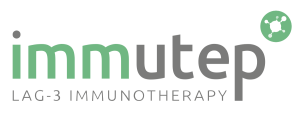
Posted: 27 June 2024
Immutep Limited (ASX: IMM; NASDAQ: IMMP) (“Immutep” or “the Company”), a clinical-stage biotechnology company developing novel LAG-3 immunotherapies for cancer and autoimmune disease, today announces topline results from the TACTI-003 (KEYNOTE-PNC-34) Phase IIb trial evaluating eftilagimod alfa (efti) in combination with MSD’s (Merck & Co., Inc., Rahway, NJ, USA) anti-PD-1 therapy KEYTRUDA® (pembrolizumab) as first-line treatment of recurrent/metastatic head and neck squamous cell carcinoma patients (1L HNSCC). The trial enrolled 171 patients with any PD-L1 expression (Combined Positive Score [CPS] ≥1) and negative PD-L1 expression (CPS <1) at over 30 centres across the United States, Europe, and Australia.
Topline Results – overall trial, primary endpoint
Immutep’s MHC Class II agonist in combination with KEYTRUDA led to higher overall response rates in evaluable patients according to RECIST 1.1 – the primary endpoint of the study – across all levels of PD-L1 expression (CPS >20, CPS 1-19, CPS >1, CPS <1) as compared to KEYTRUDA monotherapy (see Table 1). In the overall evaluable TACTI-003 patient population (Cohort A and B), the response rate for efti in combination with KEYTRUDA was ~34% regardless of HPV status and PD-L1 expression, including patients with negative PD-L1 expression.
Dr. Martin Forster of the UCL Cancer Institute and University College London Hospital NHS Foundation, London, UK, and TACTI-003 Investigator, stated, “It is encouraging to see efti safely drive higher response rates in combination with KEYTRUDA in the first line setting for head and neck squamous cell carcinoma patients, regardless of HPV status and levels of PD-L1. The strong, consistent response rates, irrespective of whether patients have high, low, or negative PD-L1 expression, is intriguing and offers a glimpse into this novel combination’s ability to improve patients’ clinical responses and expand patient populations that benefit from anti-PD-1 therapy.”
Cohort A results – randomised part of trial
In the randomised, controlled Cohort A (N=138; thereof 118 evaluable) comprised of 1L HNSCC patients with any PD-L1 expression (CPS >1), the novel immuno-oncology (IO) combination shows the strongest outperformance in patients with high PD-L1 expression (CPS >20) with a 31.0% overall response rate (ORR) and 75.9% disease control rate (DCR) in evaluable patients (N=29) as compared to a 18.5% ORR and 59.3% DCR for KEYTRUDA monotherapy in evaluable patients (N=27). High PD-L1 expressing patients represent ~50% of the overall population in 1L HNSCC.
The IO combination also achieved a relatively high ORR of 34.5% in evaluable patients (N=29) with low PD-L1 expression (CPS 1-19). The ORR with KEYTRUDA monotherapy in patients with low PD-L1 expression in TACTI003 (N=33) was 33.3% and is higher than historical published data for pembrolizumab monotherapy, including a 14.5% ORR in patients with CPS 1-19 in a registrational study1. The large difference of the control arm versus historical results in low PD-L1 patients may be explained by imbalances between the TACTI-003 treatment groups, including smoker status and location of primary tumour.



